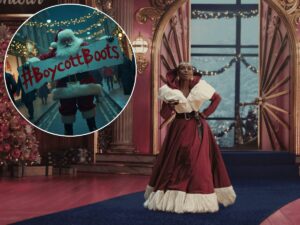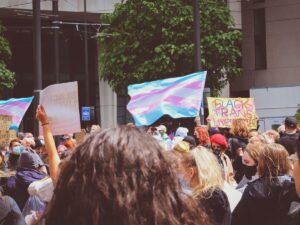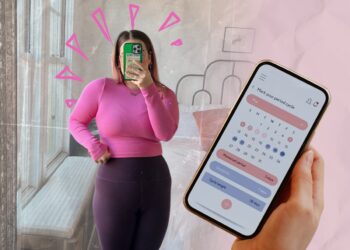For years, wearing makeup has been a staple in my daily routine. At about 13 years old, I decided on a daily makeup look, and I have sworn fealty to that look for 9 years and counting. I was mostly unquestioning about this fact; I saw makeup as a simple choice, like my daily outfit or whether I brush my hair. Makeup can even be considered an art form. Especially in recent years, people have been bold in their self-expressions through makeup, and this has led to the ridicule of the idea that women were wearing makeup to appeal to men. That idea was something I took massively to heart, telling myself that I was wearing makeup for myself and myself alone. As I have grown older, however, and as I have found myself increasingly reaching for my mascara just for a supermarket visit, I wonder if this is the case.
So decided to quit makeup cold turkey for a month and document the process, hoping I can get a clearer picture of my relationship with makeup and whether it is truly healthy.

If I have to hear ‘you look tired!’ one more time…
Ok, yes, I look tired. The banes of my existence are my genetically dark under-eye circles. I could get a full 10 hours of sleep and still emerge, looking like I’ve been subjected to sleep deprivation tactics. Perhaps it was a bit of a shock, then, to immediately subject my entire workplace (who are used to perky, concealed Georgia) to insomniac Georgia out of the blue.
With this reaction, however, it was a pretty immediate realisation that I had been wearing makeup to hide my flaws. Smearing concealer under my eyes every morning is not self-expression. Neither is applying eyeliner to my round-ish eyes in an attempt to elongate them nor overlining my cupid’s bow to give the illusion of fuller lips.
To be a woman in modern society is to have beauty shoved down our throats in a seemingly unending attack on our self-esteem. The beauty industry sells us our insecurities. If advertising campaigns couldn’t convince us that our face’s natural state is inadequate, the makeup industry would collapse. With the help of social media, never before have we been exposed to such a huge amount of beautiful people, enhanced by plastic surgery, heavy makeup and filtering. So much of my makeup routine can be dated back to passing trends of influencers on social media honing in on the brand new ‘unfashionable’ feature to have. As the years have gone on, it seems I have developed a portfolio of my flaws that need to be adjusted for me to feel truly pretty. And so, without the makeup, I felt uglier.

It was surprisingly difficult to choose to feel less pretty
As a feminist, I have always been angry at the societal pressure for women to be ‘pretty’. It sometimes seems that the highest virtue a woman can have and be celebrated for, above intelligence, humour and confidence, is her beauty. I had no idea how internalised this idea was within me. It was a genuine struggle to choose to be perceived as less ‘pretty’ for the month. The situations that were the hardest were ones where I knew I would be meeting new people, and I found myself anxious before them. I was concerned that if I wasn’t seen at my best, people might be less likely to listen to me or think of me positively. This was not an unfounded concern; there is genuine psychological evidence of something called ‘the halo effect’, a cognitive bias that leads people to attribute positive qualities to people they see as attractive. However, my awareness of these concepts just made the choice all the more difficult. In wearing makeup, I am using the perception of beauty to my own advantage. I am trying to maximise the social benefits afforded to me. In the long run, however, I am only contributing to the power that the patriarchal beauty standards hold over women. It was difficult, but it felt worthwhile nonetheless.
Where is the parity?
All of this mental load is a uniquely female phenomenon. As the month went on, I came across zero men wearing obvious makeup. At first, it wasn’t something I gave much weight to, but over time this gender disparity started to grate on me. One major benefit of my experiment was the extra time I had in the mornings. My daily routine went from thirty minutes to ten. Not only did I get more of a lie-in, it also meant that I had less reason to stand in front of the mirror analysing my own face. Suddenly my dark circles didn’t seem like a thing to be extinguished, nor was a small spot something to plaster over with concealer. It was a step in the right direction to becoming less self-conscious.

But the problem is bigger than me. The reality is that I was the only woman in the office not wearing makeup. How much extra time were we spending in the morning, intent on looking perfect in comparison to the men? These psychological battles and daily rituals were simply not something most men have to deal with. Makeup for men does exist, and some people believe that normalising men wearing makeup is a good way to fix this gender disparity. Yet I wonder if the most positive thing, the most radical thing, would be to rid ourselves of these insecurities altogether and to instead tell women that they are fine just as they are.

Finishing thoughts
I ended this month with a sense of frustration. It is clear to me now that wearing makeup is not something I do for myself, but learnt behaviour aided by decades of marketing that tells women our natural faces are something to be improved upon. Although makeup can be a beautiful art form, it is obvious that my everyday routine is nothing close to that. There were small victories; I no longer feel the need to wear makeup to the office. But in terms of social events, the added anxiety is simply not worth it. I don’t believe that going makeup free is an impossible task, but until we are able to love our own faces for what they are, we have a long way to go.














